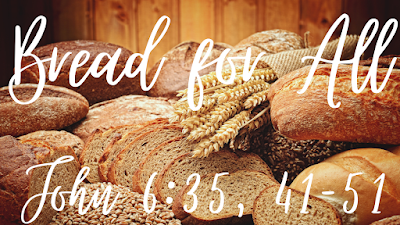Welcome Home: Luke 2:1-20 (Christmas Eve)
Welcome all from near and far! Now, I know you really want to get back to the singing, and we'll do that, but I need to say a few words tonight. The story as you know, kind of sells itself, it's not like I have to get that deep into it. Everyone knows it, and we'll get back to the singing in just a few minutes.
But let me challenge that expectation of the story that is so often repeated. The story begins, like many in our series, with a world not that different from ours: times for censuses, taxes, royal orders and decrees. The power structure is in place as it has been for generations. Even the beginning is kind of tired..."In THOSE days"... like days that are not like ours?
Something happens and the angels declare that "on THIS day" good news has arrived. It is a division of time and space, when the holy and secular have collided. It is not in our chronological time, per se, but more - this time that God has declared. Angels have infiltrated our planet, and there is a challenge to the status quo. Even time itself is different. We rush around in our daily tasks, complying with taxes, or censuses. We don't or can't even notice those who may escape our views; the migrant workers moving from city to city for work; the homeless as they wander for new places to hide from the elements. Are these people counted? We want to romanticize the poverty that Jesus is born into, but this is the world that he may have inhabited. These are the places that He wants us to go. These are the people he wants us to meet.
And yet, amazingly, as the text says, in verse 6, "And while they were there, the time came for her to deliver her child." If that doesn't ever sound the writing of a man I've ever heard. I imagine something out of Call the Midwife, set in the 1960s when men weren't involved with the messiness and blood and the pain of childbirth. it's such a peaceful vision for the most important birth in the history of the planet. We want to believe that Mary's childbirth was painless and meek, just as she seemed to be. But if we believe it, we forget the promises of God upon the advent of sin in Genesis 3 - that with pain you will give birth to children. We cannot believe that the humanness that God is bestowing through Jesus, that Mary is also fully human, and therefore through pain, giving birth. That in itself is worth celebrating.
The story of Christmas is the story of home. We need to find home not only where we are most at peace, and with the people we care about most, but even among strangers. We've been talking about home in several different contexts over the last month of Advent, and I"ve gotten questions about this concept of home? What does it mean? How can home be so many things?
This "inn" that the Holy Family occupied for the night was different than what we expect it to be. I would consider the translation to be closer to "AirBnB" for those who are familiar. Most Palestinian homes were two levels, one for the people, the other for the animals. Think of the animal area as "the garage". And on the people level, there were two rooms, one for entertaining, and the other for sleeping. There may have been a shared wall with feed troughs in the family living space, because cost limitations, building materials, etc. So what does it mean for there to be "no room"... well, the sleeping room was already occupied. Which means, that Jesus may have been born in this common space, with any number of people present, witnessing his birth, because you know - the census. The idea that he was born in a barn seems insulting, I know it makes the point, but doesn't that change the context? I'd like to think that at the beginning of his life, Jesus would have been embraced in community, just like this interpretation suggests, which would contrast the other end of his life, where he was rejected and humiliated. Doesn’t it make sense that he would be born into a community of love?
Building into that community were the shepherds, starting in verse 8. They take a different road home than that of the Holy Family. But it's not one where they were studying along the way to make sure they know everything they need to be in the Messiah's good graces. Here's what they know: The Savior was born in the "City of David". the angels put a sign in the most unlikely of places, the feeding trough in someone's house, with a child in cloths (which was also common to do at the time). The scholars and the priests in the temple have prepared for this, but these shepherds were probably clueless about what it meant, or even which direction to go in. But being outsiders, and being good at maps (through the stars), they were faithful, heading out to where the angels directed them. Even, again, they went "with haste!" They ran! There's no telling how many of them there were, but when they arrived at the home where Jesus was, they told the story of how they came to know where he was. For each of them, it may have been different, but stories were told. How many times have you told the story of how you met Jesus? Have you done it after you were hurrying, trying to catch your breath? Do you think Mary & Joseph were the only one the shepherds told? I mean - wouldn't you be sharing that story the rest of your life?
My story of how I came to Jesus is probably like the path the shepherds took - long and meandering, with few details, and fewer resources. But we'll save that for another day. But something I would like to share with you, is - I've been at Bethany church now for about six months. This is the largest congregation I've preached to. But to me, Bethany has become somewhere I can call home. So - thank you for all making me feel welcome since July, and becoming part of this messy family of faith.
As we leave here and go to our own messy families, remember the hope and the joy and the miracle of this night. May we live into Christmas every day, and that the wonder of this season never goes away. Howard Thurman, a fellow follower of Christ, put it best declaring that:
When the song of the Angel is stilled,
When the Star in the sky is gone,
When the kings and the princes are home,
When the shepherds are back with their flock,
The work of Christmas begins:
To find the lost,
To heal the broken,
To feed the hungry,
To release the prisoner,
To rebuild the nations,
To bring peace among brothers and sisters—
To make music in the heart.
And to radiate the Light of Christ,
every day, in every way,
in all that we do and in all that we say.
The work of Christmas lies before us.
So, dear friends, rejoice and be glad, for unto us a child has been born, a child who is Christ our Savior. May Christ lead each of us as we go forth to make peace on earth and good will to all.
Amen.




Comments
Post a Comment